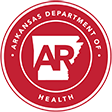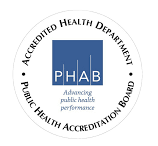Gonorrhea
What is gonorrhea?
Gonorrhea is a sexually transmitted disease (STD) that can infect both men and women. It can cause infections in the genitals, rectum, and throat. It is a very common infection, especially among young people ages 15-24 years.
Signs and Symptoms
- May be mild or absent, especially in women
- Usually begin 2-7 days after exposure
For women:
- Abnormal vaginal bleeding, discharge or itching
- Burning or pain during urination or bowel movement
- More pain than usual during periods
- Cramps and pain in lower abdomen
- Anal discomfort, itching or discharge
For men:
- Thick, white or yellow discharge (pus) from penis
- Burning or pain during urination or bowel movement
- Anal discomfort, itching or discharge
Transmission
Gonorrhea is spread by:
- Vaginal sex
- Oral sex
- Anal sex
- Infected mother to newborn
Complications
If left untreated, gonorrhea can:
- Spread to sex partners
- Lead to pelvic inflammatory disease
- Lead to ectopic (tubal) pregnancy
- Lead to infertility in men and women
- Cause infection in the joints
- Make it easier to transmit or acquire HIV during sex
During pregnancy, gonorrhea infection:
- May be passed to a newborn during childbirth
- May cause serious eye infection in newborn
- May infect other organs
Prevention
- The surest way to avoid transmission of sexually transmitted diseases is to abstain from sexual contact or to be in a long-term mutually monogamous relationship with a partner who has been tested and is known to be uninfected.
- Latex condoms, when used consistently and correctly, can reduce the risk of transmission only when the infected areas are covered or protected by the condom.
- Use a new latex condom properly for any sexual contact.
- Limit the number of sex partners.
- Notify sex partners immediately if infected.
- Make sure partners are tested and treated.
Testing and Treatment
Get a test from a medical provider if the infection is suspected.
Gonorrhea can be cured using medication prescribed by a medical provider.
- Partners should be treated at the same time.
NOTE: A person can be re-infected after treatment.
Guidelines for treatment of persons who have or are at risk for sexually transmitted diseases.
Expedited Partner Therapy (EPT) is the practice of treating sex partners of persons with STDs in the absence of medical evaluation or prevention counseling. EPT is implemented through the delivery of or prescription for therapy by the case patient to their partners. Contact your local health department for more information.
| Office | Address | Phone | Fax |
| STD Prevention | 4815 W. Markham St., Slot 33 Little Rock, AR 72205 |
501-661-2408 | 501-661-2082 |


